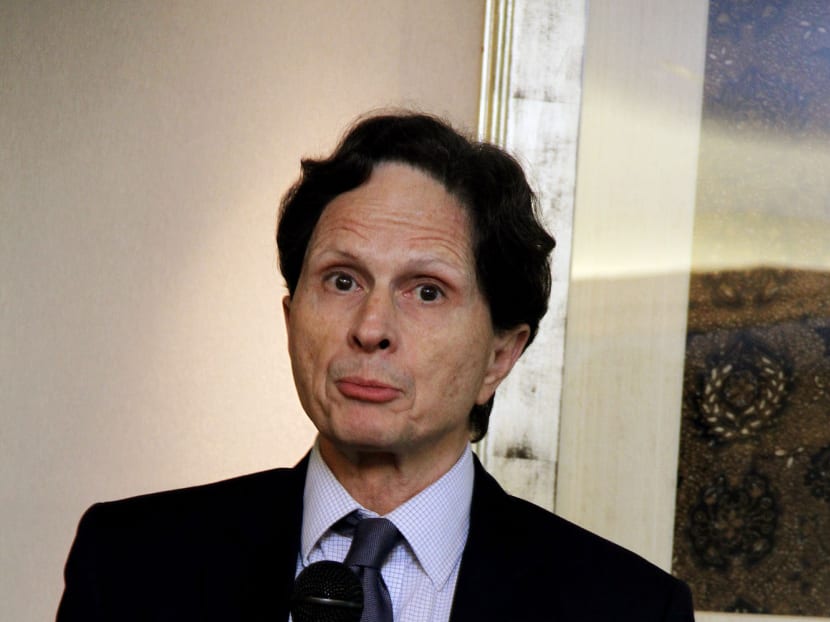Too early for H7N9 virus vaccine: Expert
SINGAPORE — It is currently too early to develop a vaccine for the H7N9 virus, said visiting infectious diseases expert Dr David Heyman, Professor of infectious disease epidemiology at the London School of Hygiene and Tropical Medicine. He added that it could mutate to become more severe.

Dr David Heyman, Head and Senior Fellow, Chatham House Centre on Global Health Security; Professor, Infectious Disease Epidemiology, London School of Hygiene and Tropical Medicine, at the opening media conference if the Regional World Health Summit on 8 April 2013. photo: Alex Westcott/TODAY
SINGAPORE — It is currently too early to develop a vaccine for the H7N9 virus, said visiting infectious diseases expert Dr David Heyman, Professor of infectious disease epidemiology at the London School of Hygiene and Tropical Medicine. He added that it could mutate to become more severe.
Speaking at a media conference at the Regional Health Summit, held in Singapore for the first time, he also cautioned against early predictions, saying that the virus could also turn out less severe. As there is no database on when pandemic streams developed in past, it is also difficult to use any previous data to predict the nature of this virus now, added Dr Heyman.
“Influenza Viruses are very unstable and can change rapidly ... It is difficult to put all this in perspective. Because since (the SARS virus in) 2003, there’s been heightened surveillance, mobile technology, we’ve also developed more diagnostic tests. So we can’t compare 10 years before and now, we can’t see if H7N9 has been occurring frequently ... Or if it’s new,” said Dr Heyman, who is also the head and senior fellow of the Chatham House Centre on Global Health Security.
He added that China is now working to sequence the virus, although the progress is currently unknown yet. Dr Heyman also echoed other experts, saying that there is also no evidence of human to human transmission.
Vice-provost (Academic Medicine) at the NUS, Professor John Wong, who was also at the media conference, emphasised that what is needed is good animal husbandry and veterinary science to be developed, in combating animal to human diseases.
About 900 delegates from 46 countries are expected to converge at this conference, which is being held Asia for the first time. The conference will discuss issues and challenges in public health facing Asia. Prime Minister Lee Hsien Loong and Health Minister Gan Kim Yong are officiating at the opening ceremony tonight.





